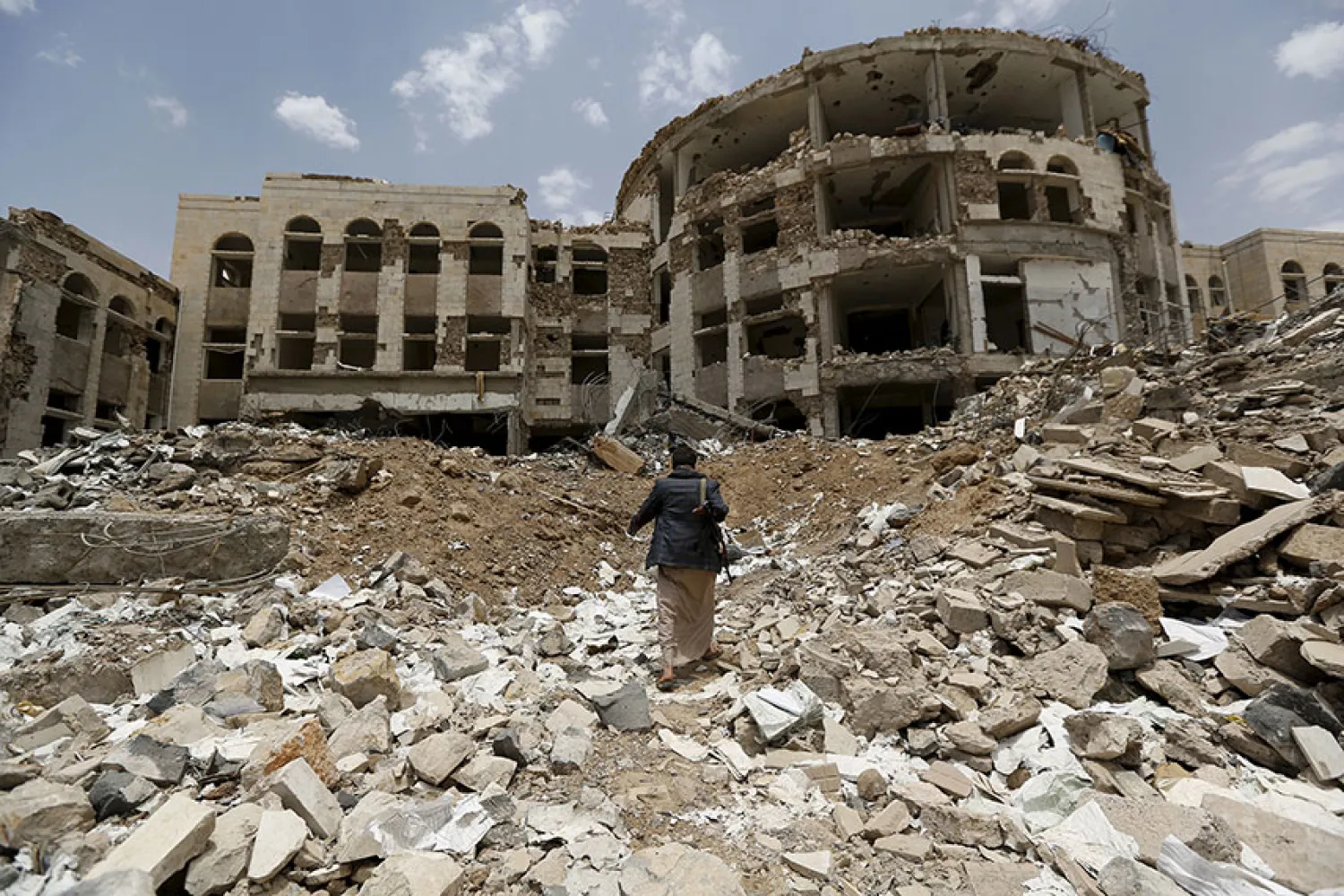Yemeni Minister of Local Administration, Head of the Higher Committee for Relief Abdul Raqib Fatah condemned the forced displacements carried out by the coup militia against the residents of the Jabal Habashi district in Taiz governorate.
He accused them of forcing the residents to leave their homes and planting mines in the vicinity of these houses, resulting in the injury of a number of people.
In a statement issued by Yemeni news agency, Fatah called on UN Resident Coordinator for Humanitarian Affairs in Yemen Jimmy McGoldrick to condemn the actions of the militias and their daily violations against the people of Taiz and other governorates.
He asked McGoldrick to visit Taiz and learn about the daily crimes committed by Houthi and Saleh militias against children, women and civilians, who are forcibly being displaced. He urged him to send urgent reports to rights organizations and the UN Security Council about the people’s suffering.
Fatah considered the silence of the UN Resident Coordinator and the UN human rights organizations unacceptable, pointing out that remaining silent casts doubt on the credibility and impartiality of the organizations.
Meanwhile, founder of the Strategic Research Institute of the French Military Academy Dr. Frederic Charillon said that the Yemeni state, represented by the legitimate government, is keen not to make mistakes.
He added that the militias “do not abide by any rules, do not have any ethics and do not recognize any treaties or charters.”
The French researcher spoke during a panel discussion in Paris on Friday, entitled “How to Protect Yemen’s Cultural Heritage,” about the instability witnessed by a number of Arab states.
He pointed out that the situation in Yemen is difficult and complicated due to an asymmetry in dealing with the humanitarian and political situation.
He also called on the concerned international parties to put an end to the humanitarian tragedy that Yemen has been experiencing since the beginning of the Houthi coup.









